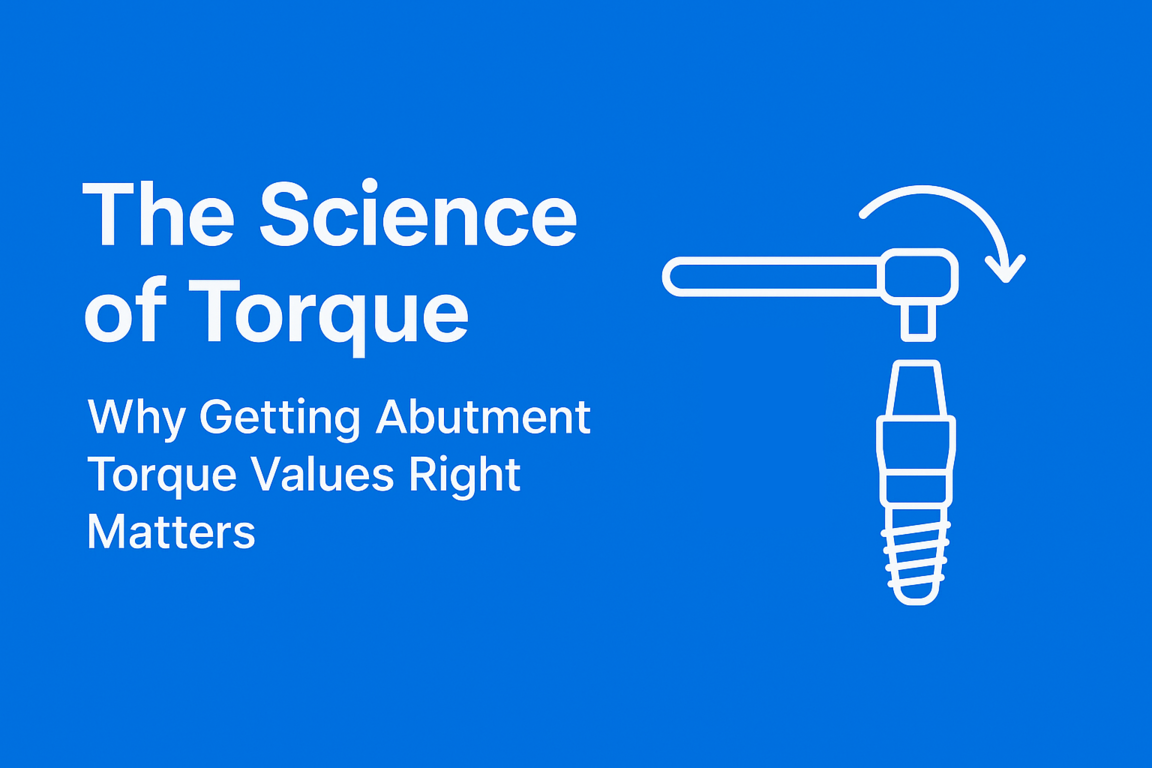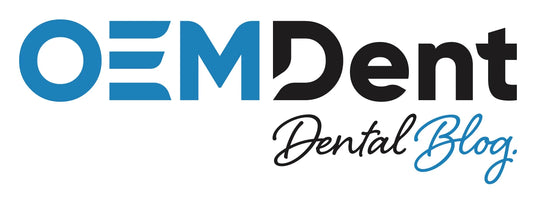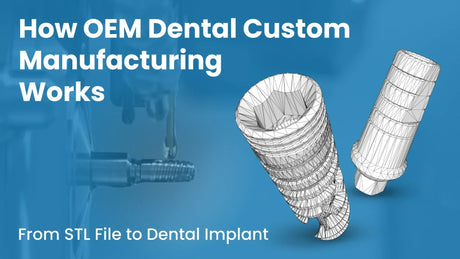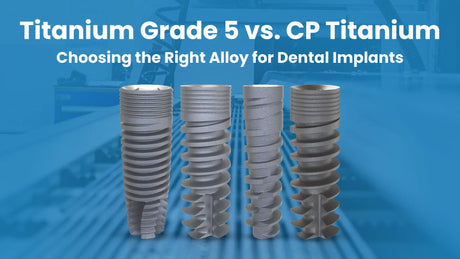

The Science of Torque: Why Getting Abutment Torque Values Right Matters
When we talk about dental implant success, most people focus on the big, visible things - implant design, abutment materials, crown esthetics. But at OEMDent, we know there's one critical factor that often flies under the radar: torque.
Getting the torque right when tightening abutment screws can mean the difference between a restoration that lasts a decade and one that fails in a matter of months. This isn’t just theory - it’s something we’ve seen repeatedly in real clinical and lab cases.
Let’s take a closer look at why torque is so important, what happens when it’s done wrong, and how to get it right, whether you're restoring a single unit or working on a full-arch hybrid case.
🦷 What Is Torque in Dental Implantology?
Torque is the rotational force applied when tightening a screw - whether it’s connecting an abutment to an implant or securing a screw-retained prosthesis.
It’s measured in Newton centimeters (Ncm) and is a crucial part of the process because it determines how much preload is applied to the screw. Preload is the internal tension that helps the screw stay tight and the components stay stable under functional chewing forces.
🔩 Why Preload Is the Real Game-Changer
When you torque a screw properly, you're stretching it slightly - almost like a spring - to generate preload. This preload is what holds the parts together, resisting the constant micro-forces from chewing, talking, and grinding.
When you apply the right torque:
- ✅ You get stable seating of the abutment or prosthesis
- ✅ Screws stay tight under function
- ✅ The entire implant system remains biomechanically sound
When torque is too low:
- ❌ The screw may gradually loosen
- ❌ Bacteria can enter through microgaps
- ❌ You may see soft tissue irritation or peri-implant bone loss
When torque is too high:
- ❌ You risk stripping threads or fracturing the screw
- ❌ You can damage the internal connection of the implant
-
❌ Long-term stability of the prosthetic is compromised
🔧 Real Case Study: A Loose Screw That Cost the Case
A clinician recently shared a case with us: a patient returned just six weeks after receiving a screw-retained zirconia bridge on four implants. One of the screws had completely loosened and caused movement in the entire prosthesis.
The cause? The abutment screw had been torqued manually without a calibrated wrench. No one realized it had only received about half the force it was supposed to.
After re-tightening using a torque wrench and the proper driver, the restoration held firm. But the case required additional chair time, patient frustration, and unnecessary stress for everyone involved.
🛠️ How to Apply Torque the Right Way (Without Guessing)
Here’s what we advise at OEMDent when it comes to applying torque in a clinical or lab setting:
1. Use a Calibrated Torque Wrench
Never rely on hand-tightening. Even the most experienced clinician can’t “feel” an exact torque value. Manual and digital torque wrenches are essential - and they need to be checked or recalibrated every 6-12 months.
2. Follow Manufacturer Guidelines
Each implant system has its own torque recommendations for abutment and prosthetic screws. While values typically range between 15 Ncm and 35 Ncm, it’s vital to consult the documentation for the specific implant system you're working with.
At OEMDent, we always recommend that our customers refer directly to the original implant manufacturer’s guidelines for torque settings. Even for compatible parts, this ensures you're matching the performance standards of the original system.
3. Don’t Forget the Settling Effect
It’s often helpful to re-torque the screw 5-10 minutes after the initial torque. This compensates for any minor settling that occurs in the screw or implant interface during the initial preload phase.
🔍 Common Torque Ranges by System Type (For Reference Only)
While we don’t publish specific torque charts (since they vary), here’s a general idea based on industry norms. But always double-check with the implant manufacturer.
|
Type of System |
Common Torque Range |
|
Internal Hex |
30-35 Ncm |
|
Conical Connection |
25-30 Ncm |
|
Multi-Unit Abutments |
15-25 Ncm |
|
Prosthetic Screws |
15-35 Ncm |
Again, these values are general estimates. Always use the implant system’s official recommendation when working with OEMDent-compatible components.
👨⚕️ OEMDent Quality = Better Torque Performance
Our mission at OEMDent isn’t just to supply you with premium-quality abutments, screws, and implant accessories - it’s to make sure your restorations succeed long-term.
- Our components are precision-machined to ensure a secure fit and torque reliability.
- Threads are ISO-compliant to match OEM specifications, improving torque transmission.
-
Every batch is rigorously tested for performance and compatibility.
While we don’t issue torque specs directly, we’re always here to help you identify the best practice for your system. Got a question about what torque to apply with one of our parts? Reach out - we’re more than happy to advise.
🔁 Torque, Maintenance, and Long-Term Success
Here’s our recommendation for keeping things stable long after the patient leaves the chair:
- Re-check torque at delivery appointments - a simple extra step that can prevent issues later.
- For full-arch and screw-retained cases, make sure your design allows access to the screw channel in case you need to retighten.
-
Educate patients about avoiding habits like chewing ice or bruxism, which can destabilize components even when torqued correctly.
✅ Key Takeaways
- Torque is not optional - it’s a critical part of implant success.
- Always use a torque wrench, not just hand-tightening.
- Don’t guess. Refer to the implant manufacturer’s torque recommendations.
- OEMDent components are built to OEM specs, but performance depends on correct clinical technique.
👋 Final Thoughts
Torque might seem like a small step in the grand scheme of dental implantology - but it's a powerful one. When overlooked, it can cause costly, avoidable complications. When done right, it ensures your restorations perform exactly as intended - strong, stable, and beautiful for years.
At OEMDent, we stand behind every abutment, screw, and component we sell. We know that precision matters - and that includes how tightly you turn your screws.
Need help picking the right components or tools for your case?
Contact our technical support team - we’re here to help you succeed with confidence.
📚 Recommended Reading:

OEMDent.com offers uncompromised quality, cost-effective dental implants & prosthetics compatible with leading implant systems. We go beyond manufacturing, offering OEM & Private Label services to meet your dental needs.






